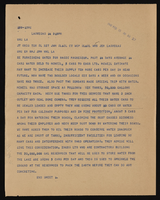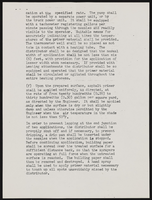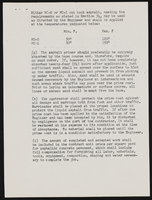Search the Special Collections and Archives Portal
Search Results
Earl Rockwell Papers
Identifier
Abstract
The Earl Rockwell Papers (1852-1978) consists of newspaper clippings, diaries, books, correspondence, and ephemera related to Las Vegas, Nevada pioneer Earl Rockwell. The collection documents Rockwell’s life in Las Vegas and Elmira, New York and also contains seven nineteenth-century diaries that belonged to Rockwell’s grandmother, Amanda Brees.
Archival Collection
Maggie Mancuso Collection of Film Locations
Identifier
Abstract
The Maggie Mancuso Collection of Film Locations dates from 1994 to 2001 and consists primarily of color photographs of locations throughout Las Vegas, Nevada for the film
Archival Collection
Johnny Eshow Haig Papers
Identifier
Abstract
The Johnny Eshow Haig Papers (1970-1990) are comprised of contracts, agreements, and correspondence of musician Johnny Haig, who worked as a trombone player and conductor at various hotels in Las Vegas, Nevada from 1955 until 2000. Additionally, the papers house extensive original music scores written by Haig. The papers primarily cover Haig’s later career in the 1970s and 1980s.
Archival Collection
Las Vegas Professional Men's Club Records
Identifier
Abstract
The Las Vegas Professional Men’s Club Records (1984-1997) consist of the constitution, meeting minutes, and organizational documents of the Las Vegas Professional Men’s Club, later known as the Las Vegas Men’s Club (LVMC). The LVMC provided a social outlet for gay men in Southern Nevada. The bulk of the materials date from the 1990s and include membership lists, event fliers, promotional materials, financial documents, and information documenting the club’s fundraising activities.
Archival Collection
Rochelle Hornsby Papers
Identifier
Abstract
Papers are comprised of newspaper clippings, photographs, and ephemera collected by Rochelle Hornsby about her life in Las Vegas, Nevada during the 1970s and 1980s and her involvement with Temple Beth Sholom. The papers include information about Temple Beth Sholom productions and plays as well as Hornsby's involvement with local sport leagues.
Archival Collection





